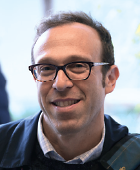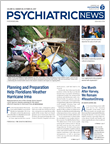When I entered medical school in the late 1980s, I felt initiated into a mysterious sect that would train me to become a physician. Despite the emotional support of some teachers, school often seemed an entrenched culture that valorized personal sacrifice for undefined long-term gain.
Interns and residents worked 36 hours straight and 110 hours weekly with the promise of becoming healers upon whom society bestowed prestige and monetary rewards. The culture on the wards could be crass and brutalizing. Education and learning came at a high cost.
Through the years, our field has started to learn, often the hard way, that the cost of this kind of training is too high. The rate of depression and suicide among physicians, especially psychiatrists, is higher than those of many professionals, and the rates of burnout are significant.
Fortunately, medical education is changing. As a profession, we have come to recognize that wellness and well-being are more than the absence of disease and that we need to heal ourselves so that we can take care of our patients more effectively and compassionately.
At the University of California, San Francisco (UCSF), we have developed the Medical Student Well-Being Program, which advances a different way of thinking about our own health and well-being. We support and disseminate the idea that physicians needn’t be wounded healers to learn and to treat their patients. Nationwide, wellness programs for medical students are becoming more common, as educators grapple with how to change the culture of sacrifice and pain that medicine has embraced.
Our program partners with physicians-in-training to develop their “basic self-maintenance plan” for taking care of themselves and learning to modify the plan when extremely busy.
As a psychiatrist who directs the program, I ask students about various aspects of their lives outside of medicine in our first clinical interview. How much sleep do they need? What does a healthy diet look like? What kind of exercise do they enjoy? What activities give them pleasure and meaning? How do they remain in contact with family and friends? Have they been able to make new connections with classmates? Are they in intimate relationships? How have their studies impacted those relationships?
I inquire whether students have an interest in aspects of medicine outside of academics, like medical policy and social justice. I urge them to get involved with organized medicine.
I never used to ask students whether they have any spiritual practice, but now I do. The goal is not to push a particular form of organized religion or faith or foist a meditation practice upon them, but to encourage them to engage or reengage with a spiritual practice that may lend new meaning. I sometimes hear, “I used to go to church on Sundays, and I loved it” or “I used to meditate a few minutes daily, but I stopped my practice.” For one student, her connection with the sublime was getting out of the school environment to hike, but she didn’t have a car anymore.
I ask students to consider how much caffeine and alcohol (or other substances) they regularly consume and to consider how those substances affect performance. Do their consumption patterns need to be changed?
The students and I then craft a personalized treatment plan that incorporates their interests and preferences, given the time constraints they face. Short-term psychotherapy and psychopharmacology may also comprise part of treatment.
When students enter clinical clerkships, the medical student well-being program reaches hospital sites to conduct wellness rounds. This group intervention allows students to discuss their experiences in a nonjudgmental setting where they are not evaluated.
I stress the importance of choice and of students’ making healthy decisions. I want students to thrive in the extremely demanding and rewarding field of medicine, avoid burnout, and take care of their basic needs.
I often tell students that going to medical school is like running four consecutive marathons or biking 500 miles weekly. Students must learn to implement healthy practices to finish these endurance tests and to allow their best selves to emerge.
I also tell them that the field of medicine is like a giant tent and that finding a place under that tent that feels right for them is a crucial task. Maintaining their integrity and wholeness is an essential skill to learn. It is as important as learning to take a clinical history and do a physical exam. Our lives and the lives of our patients depend on it. ■
Information about the Physician Well-Being Program at UCSF can be accessed
here.



